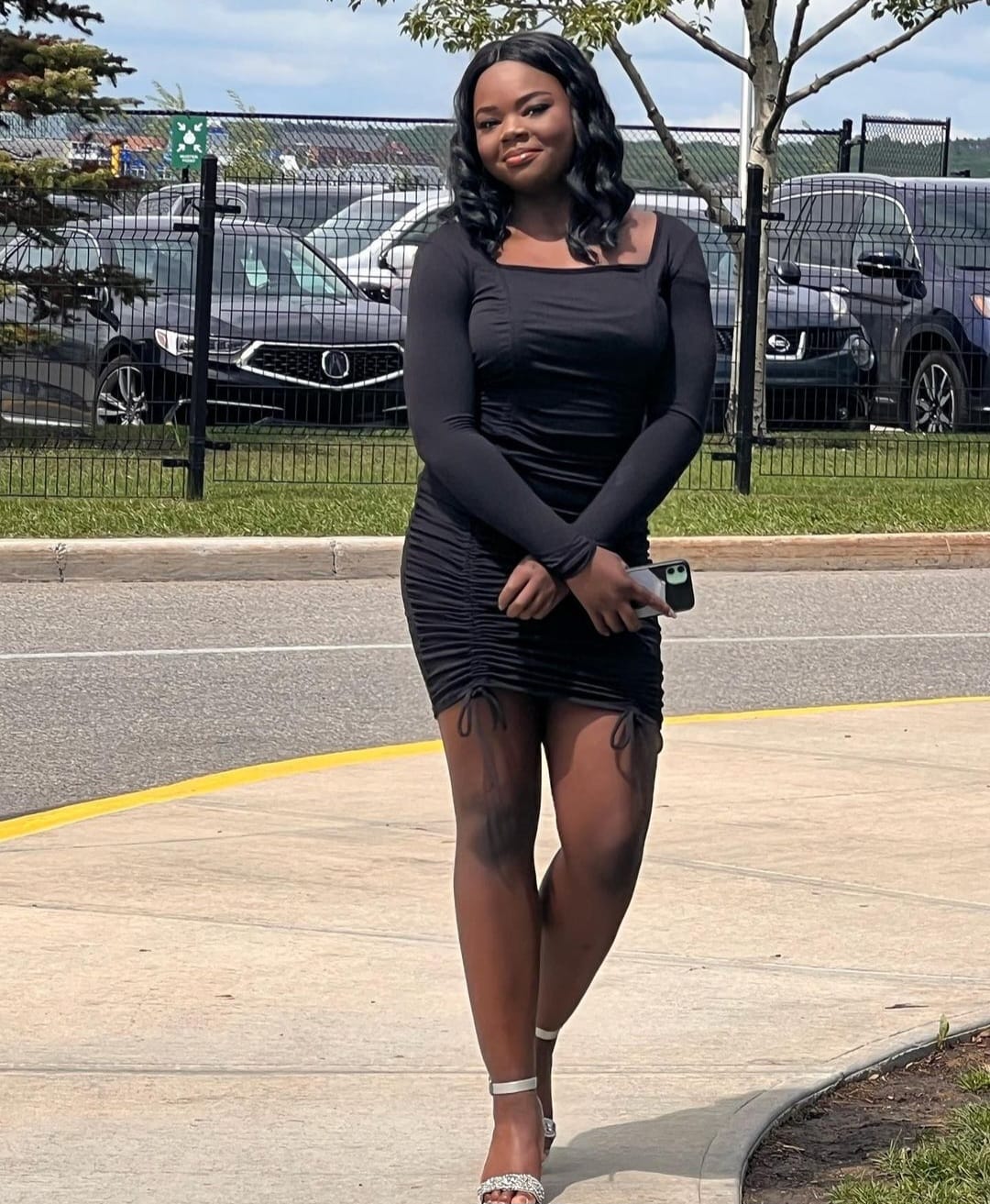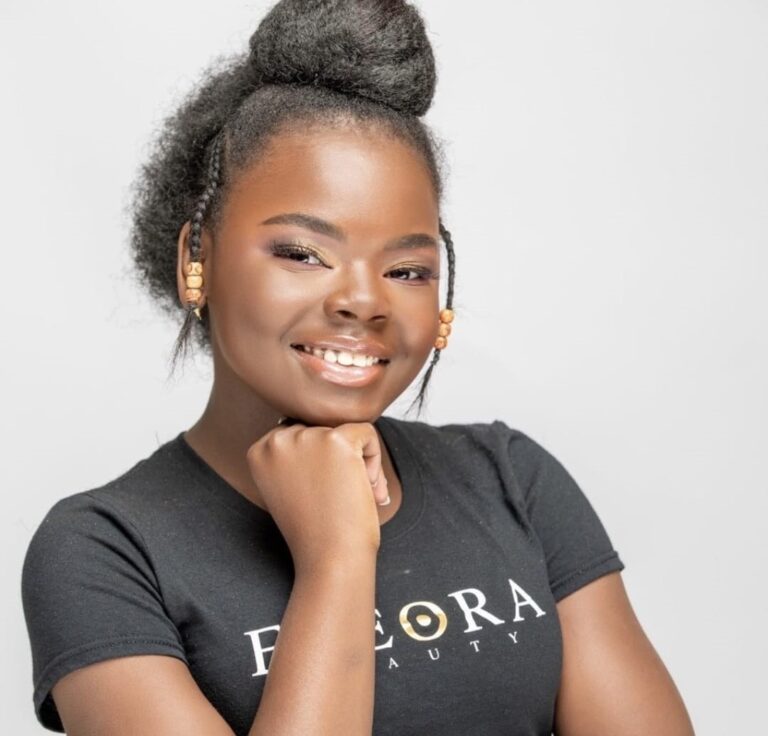Eleora Ogundare was diagnosed with sickle cell disease at birth and finally got treatment when she was eight years old.
During the course of treatments and chemotherapy for the red blood cell disorder, her hair started falling out.
“My hair was my confidence because the kids I was around, they had like the long, nice long hair,” Eleora told Cbc news , she then decided with her mum to cut her hair and make the change quick, hoping kids in school wouldn’t make comments.
“I felt, like, naked almost because, the thing that was like giving me confidence, I didn’t have it anymore. I had to cut it all off.”

Owning Her Identity
While Eleora was battling for her health, her mum was trying to find solutions for her young daughter’s hair, and with it, her sense of self.
“The struggle for them is identity, you know, trying to understand why their hair is not as silky as the next person in her class,” said Eugenia Ogundare, Eleora’s mother, who says hair for a Black women is “her crown.”
“But then having to lose that hair was a whole different ball game altogether.”
“One of the problems Black women actually face would be the edges, so that’s the first thing we get, that, ‘Oh, it actually works for my edges’,” said Eugenia, who has received plenty of positive feedback about the products she and her daughter work together on.
“And then we get the mothers who say, ‘Oh, my daughter’s hair was hard to manage. It’s more manageable [now]’.”
Adedoyin Omotara sells the Eleora Beauty line through both her salon, Adoniaa Beauty, and the Adoniaa Collective, a store for Black entrepreneurs at Westbrook Mall.
“It’s a huge part of what makes us us, especially physically, but we need to understand the impact it has on us inside,” said Omotara, who says she understands the pressures to conform that can sometimes arise for Black kids as they become more conscious of their environment and who they are.
Omotara says her own three-year-old has already questioned why his hair is so curly or difficult to comb compared to the hair of his friends.
“Especially for younger people, they need to understand that there are products that can actually work for our hair so that they don’t start to put toxic product in their hair, just to want to look like another Sharon on the street or another Anita on the street.”
Regaining Her Self-Confidence
Now long past the illness she suffered as a child, Eleora hopes that the products created through her experience help other young Black girls feel empowered to be themselves.
“Our hair is beautiful the way it is and it’s different in a good way … it just expands our culture and really shows who we are,” said the teen, who recently chose to cut her hair again.
“It wasn’t as bad this time. Like, I’m more confident in it, and I also just want to teach other, like, young Black girls that, you know, like short hair or like long hair. You can rock it either way.”
Omotara says the young entrepreneur’s story is one that should give hope to their community.
“Whatever problems we have in our community, we remain the solution to those problems because we know where it bites the most, right? And that is why we are the ones to proffer the solution.”
“I think we’re making a difference in like, young girls lives,” said Eleora.
“When I was younger, I kinda wish I had something like this too, to make me feel more confident. But I’m happy that I’m doing it now to help other people.”
Congrats, Eleora. We celebrate you

Comments are closed.